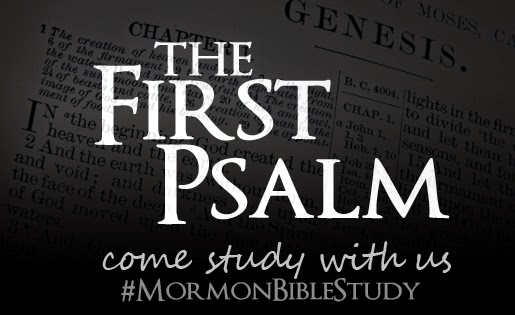So, why Psalms? Well, for one thing, it's not so much that it's too intimidating. It's just one book. And it's music. I love music. There's some really lovely hymns that are psalms set to music.
Most of us are familiar with The Lord is My Shepherd, a setting of the
23rd Psalm, but when I looked at the back of the hymnal, there are
more than 75 hymns that reference the Psalms. I had no idea the Psalms were so influential in our music! Just looking through those songs and their Psalms could be a fruitful study all on its own
. Music is, after all, very good for us, even something that we are instructed to participate in:
...but be filled with the Spirit; Speaking to yourselves in psalms and hymns and spiritual songs, singing and making melody in your heart to the Lord;
-Ephesians 5:18-19
However, "psalm" isn't a word that you typically see, outside of the scriptures. I found myself wondering, "What
is a psalm, as distinct from a hymn or song?" At the suggestion of a friend of mine, I turned to the 1828 Webster's Dictionary. She told me that she likes to use that one because, it being so old, that language is closer to the language used in the King James, and it gives her an extra window into the older style of writing in the Bible.
Webster said this:
PSALM, n. s`am. [L. psalmus; Gr. to touch or beat, to sing.]
A sacred song or hymn; a song composed on a divine subject and in
praise of God. The most remarkable psalms are those composed by David
and other Jewish saints, a collection of one hundred and fifty of which
constitutes a canonical book of the Old Testament, called Psalms, or the
book of Psalms. The word is also applied to sacred songs composed by
modern poets, being versifications of the scriptural psalms, or of these
with other parts of Scripture, composed for the use of churches; as the
Psalms of Tate and Brady, of Watts, &c.
A song about the divine, particularly in praise of God. In fact, the Psalms are called
Tehillim or "Praises" in Hebrew
*. That, as distinct from a
hymn, which seems to refer more to the music itself:
HYMN, n. hym. [L. hymnus; Eng. hum.]
A song or ode in honor of
God, and among pagans, in honor of some deity. A hymn among christians
is a short poem,composed for religious service, or a song of joy and
praise to God. The word primarily expresses the tune,but it is used for
the ode or poem.
And when the had sung a hymn, they went out to the mount of Olives. Matt.26.
In any case, the Lord's approval of music is clear, and the scriptures admonish us to use music in a variety of ways, including as a teaching tool:
Let the word of Christ dwell in you richly in all wisdom; teaching and admonishing one another in psalms and hymns and spiritual songs, singing with grace in your hearts to the Lord.
-Colossians 3:16
And as a way of expressing our happiness:
Is any among you afflicted? let him pray. Is any merry? let him sing psalms.
-James 5:13
Modern prophets and apostles have commented on the importance of music as well. From the First Presidency Preface to the LDS Hymnal:
Some of the greatest sermons are preached by the singing of hymns. Hymns move us to repentance and good works, build testimony and faith, comfort the weary, console the mourning, and inspire us to endure to the end. We hope to see an increase of hymn singing in our congregations. We encourage all members, whether musically inclined or not, to join with us in singing the hymns. ... Music has boundless powers for moving families toward greater spirituality and devotion tot he gospel. Latter-day Saints should fill their homes with the sound of worthy music. ... Teach your children to love the hymns. Sing them on the Sabbath, in home evening, during scripture study, at prayer time. Sing as you work, as you play, and as you travel together. Sing hymns as lullabies to build faith and testimony in your young ones. ...Brothers and Sisters, let us use hymns to invite the Spirit of the Lord into our congregations, our homes, and our personal lives. Let us memorize and ponder them, recite and sing them, and partake of their spiritual nourishment. Know that the song of the righteous is a prayer unto our Father in Heaven, "and it shall be answered with a blessing upon [your] heads."

This post is part of a series.
Click the button below to go to the series index.
















